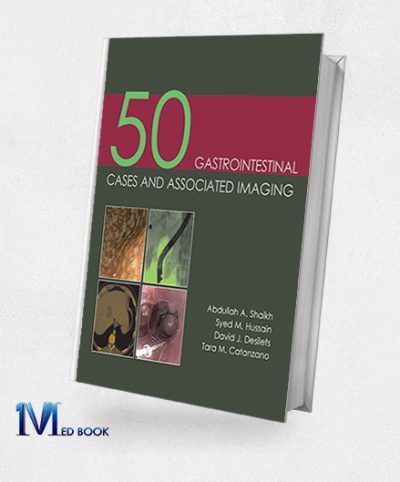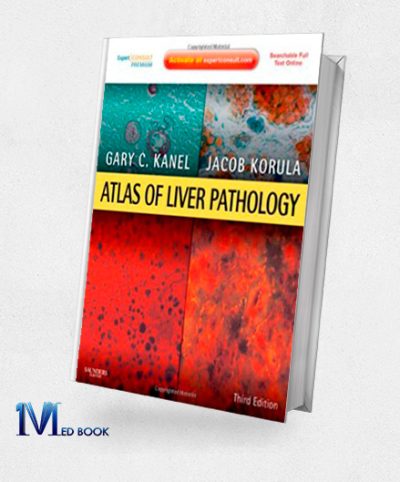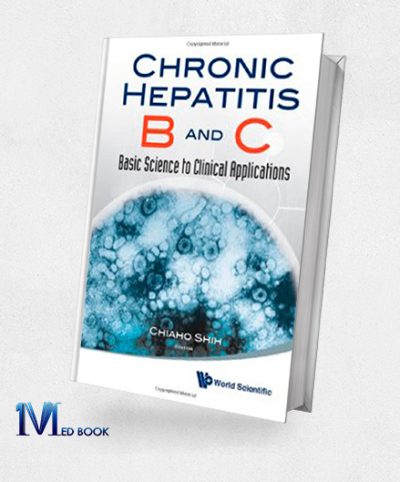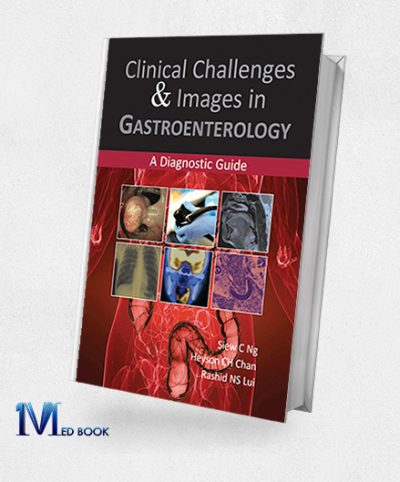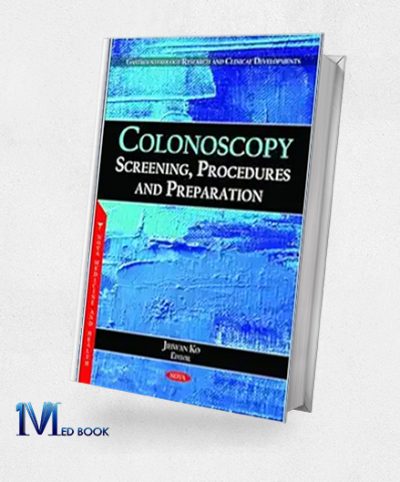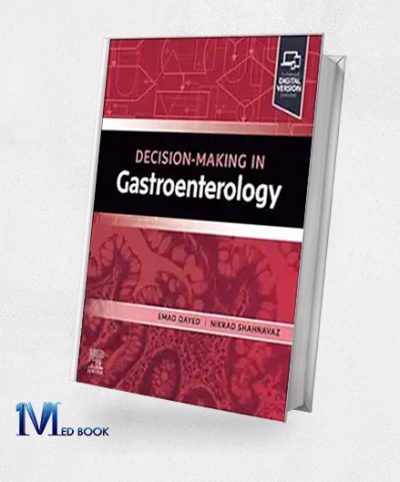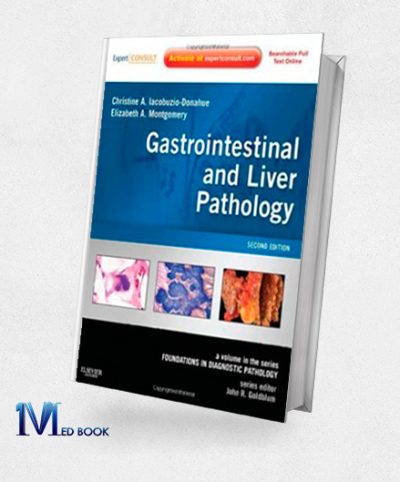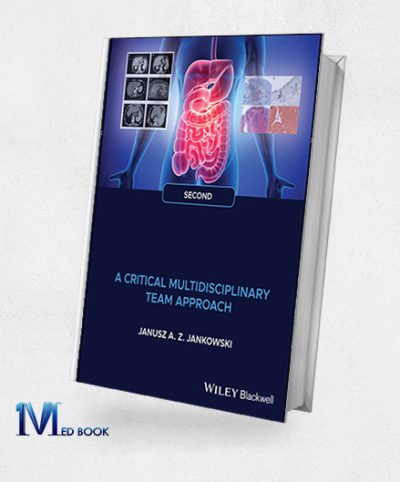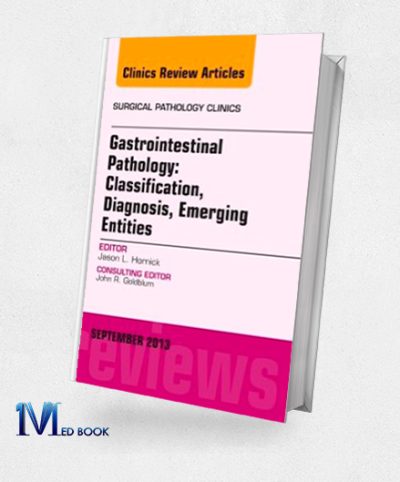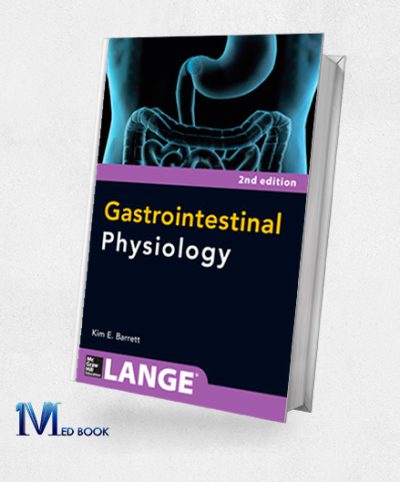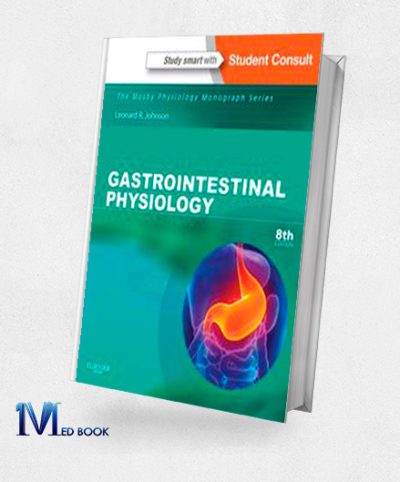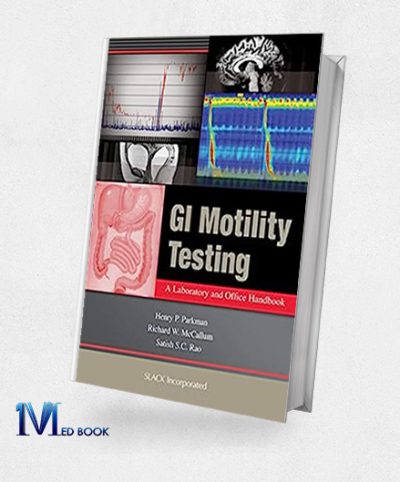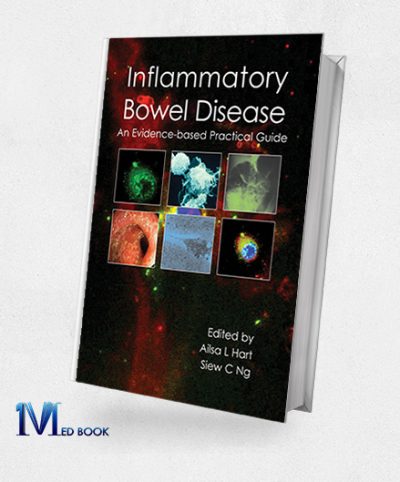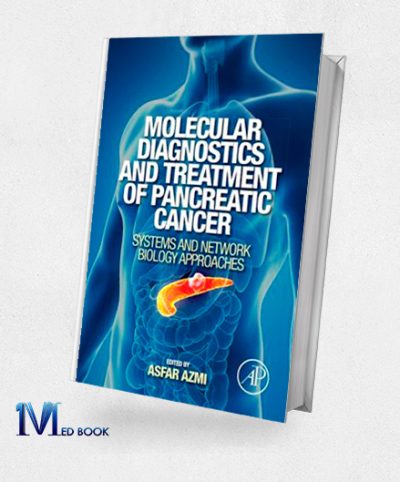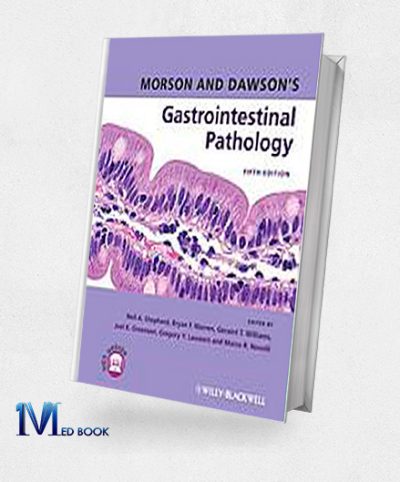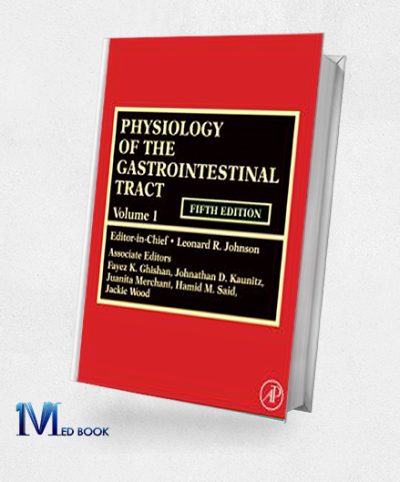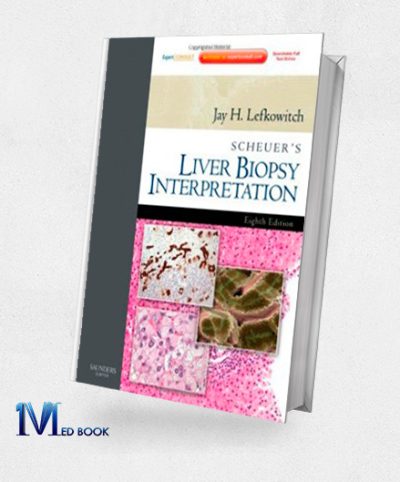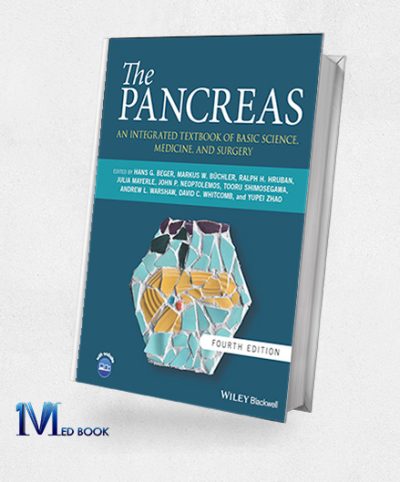Gastroenterology
50 Gastrointestinal Cases and Associated Imaging (EPUB)
Original price was: $89.95.$21.00Current price is: $21.00.50 Gastrointestinal Cases and Associated Imaging (Original PDF from Publisher)
Original price was: $89.95.$21.00Current price is: $21.00.Atlas of Liver Pathology Expert Consult Online and Print 3rd Edition (Original PDF from Publisher)
Original price was: $229.47.$32.60Current price is: $32.60.Chronic Hepatitis B and C Basic Science to Clinical Applications (Original PDF from Publisher)
Original price was: $107.00.$21.00Current price is: $21.00.Clinical Challenges and Images in Gastroenterology (EPUB)
Original price was: $90.00.$21.00Current price is: $21.00.Colonoscopy Screening Procedures And Preparation (Original PDF From Publisher)
Original price was: $102.00.$27.00Current price is: $27.00.Decision Making In Gastroenterology (True PDF)
Original price was: $124.99.$33.00Current price is: $33.00.Gastrointestinal and Liver Pathology A Volume in the Foundations in Diagnostic Pathology Series Expert Consult Online and Print, 2nd Edition (PDF)
Original price was: $158.89.$28.70Current price is: $28.70.Gastrointestinal Oncology, 2nd Edition (Original PDF From Publisher)
Original price was: $439.66.$75.00Current price is: $75.00.Gastrointestinal Pathology Classification Diagnosis Emerging Entities An Issue of Surgical Pathology Clinics 1st Edition (The Clinics Surgery)
Original price was: $85.19.$24.70Current price is: $24.70.Gastrointestinal Physiology 2nd Edition (Lange Medical Books) (Original PDF from Publisher)
Original price was: $38.56.$21.00Current price is: $21.00.Gastrointestinal Physiology Mosby Physiology Monograph Series 8th Edition (Original PDF from Publisher)
Original price was: $39.32.$22.10Current price is: $22.10.GI Motility Testing A Laboratory And Office Handbook (Original PDF From Publisher)
Original price was: $103.95.$32.00Current price is: $32.00.Inflammatory Bowel Disease (EPUB)
Original price was: $90.00.$22.00Current price is: $22.00.Morson and Dawsons Gastrointestinal Pathology 5th Edition (Original PDF from Publisher)
Original price was: $218.00.$21.00Current price is: $21.00.Need-To-Know NAFLD The Complete Guide To Nonalcoholic Fatty Liver Disease (Original PDF From Publisher)
Original price was: $114.95.$26.00Current price is: $26.00.Physiology of the Gastrointestinal Tract 5th Edition (Original PDF from Publisher)
Original price was: $344.89.$21.00Current price is: $21.00.Scheuers Liver Biopsy Interpretation 8th Edition (Original PDF from Publisher)
Original price was: $114.28.$27.90Current price is: $27.90.Self Expanding Stents In Gastrointestinal Endoscopy (Original PDF From Publisher)
Original price was: $83.00.$23.00Current price is: $23.00.Gastroenterology
Introduction to Gastroenterology
Gastroenterology is a branch of medicine that focuses on studying and treating the digestive system, which comprises various organs like the stomach, intestines, liver, and pancreas. It is not only concerned with the anatomical understanding of these organs but also plays an important role in maintaining digestive health, diagnosing gastrointestinal disorders, and promoting well-being. The digestive system is responsible for nutrient absorption, metabolism, and waste elimination, making gastroenterology crucial in identifying and treating issues that may affect these processes. Gastroenterologists use a holistic approach to achieve optimal digestive function while recognizing the interconnectedness of gastrointestinal health with an individual’s overall well-being.
Anatomy and Function of the Digestive System
An in-depth understanding of the anatomy and function of the digestive system is essential in the field of gastroenterology. The digestive system comprises a complex network of organs, each with a vital role in the intricate processes of digestion and nutrient absorption. The stomach, liver, and intestines are among the most crucial organs in this system. The stomach plays a crucial role in the initial breakdown of ingested food through mechanical and chemical processes. The liver, on the other hand, is a metabolic powerhouse that produces bile and processes nutrients absorbed by the intestines. The small and large intestines facilitate the absorption of essential nutrients and water. Gastroenterologists closely examine the functions of these organs to gain insights into digestive health, diagnose disorders, and develop comprehensive treatment plans aimed at restoring the delicate balance of the digestive system.
Common Gastrointestinal Disorders
In the field of gastroenterology, it is crucial to conduct a thorough examination of common gastrointestinal disorders. One of the most prevalent challenges is Gastroesophageal reflux disease (GERD), which is characterized by the backward flow of stomach acid into the esophagus. Another common condition is Irritable bowel syndrome (IBS), marked by abdominal pain and altered bowel habits. Additionally, there is inflammatory bowel disease (IBD), which includes Crohn’s disease and ulcerative colitis, and represents a group of chronic inflammatory conditions that affect the gastrointestinal tract. Understanding the causes, symptoms, and current diagnostic and management approaches for these disorders is essential for gastroenterologists. With a comprehensive understanding of these conditions, gastroenterologists can provide effective care, addressing the unique challenges posed by each disorder to enhance patients’ digestive health and overall well-being.
Diagnostic Techniques in Gastroenterology
In the field of gastroenterology, it is crucial to use various diagnostic techniques to ensure a comprehensive assessment of digestive health. Endoscopy, colonoscopy, and advanced imaging studies are some of the techniques that play a significant role in the accurate diagnosis of various gastrointestinal conditions. Endoscopy enables direct visualization of the gastrointestinal tract, which helps to identify any abnormalities, while colonoscopy focuses on the examination of the colon and rectum. These diagnostic tools not only aid in the detection of structural issues like polyps or inflammation but also facilitate the collection of tissue samples for further analysis. Incorporating these advanced diagnostic methods into clinical practice empowers gastroenterologists to provide accurate assessments, guide tailored treatment plans, and ensure optimal digestive health outcomes for their patients.
Liver Diseases and Hepatology
Within the realm of hepatology, a comprehensive discussion on liver diseases is imperative. This includes an exploration of prevalent conditions such as hepatitis, cirrhosis, and fatty liver disease. The liver, a vital organ, performs crucial functions in metabolism, detoxification, and synthesis of essential proteins. Hepatitis, characterized by inflammation of the liver, poses a significant health concern, while cirrhosis denotes the advanced scarring of liver tissue, often resulting from prolonged liver damage. Fatty liver disease involves the accumulation of fat in liver cells and is associated with metabolic disorders. Understanding the intricacies of these liver disorders is essential for hepatologists to diagnose, manage, and prevent complications. By delving into the functions of the liver and the intricate web of liver diseases, hepatologists can contribute significantly to preserving overall health and well-being.
Nutrition and Gastroenterology
Within the realm of gastroenterology, an examination of the intricate relationship between nutrition and digestive health is paramount. Diet plays a pivotal role in maintaining the well-being of the digestive system. Gastroenterologists recognize the significance of nutritional interventions in managing various gastrointestinal disorders, tailoring dietary recommendations to alleviate symptoms and promote healing. A balanced diet, comprising essential nutrients, is integral to overall well-being and can positively impact digestive health. This intersection of nutrition and gastroenterology underscores the importance of dietary choices in preventing, managing, and enhancing the quality of life for individuals with gastrointestinal concerns. As practitioners navigate this dynamic relationship, they contribute to a holistic approach to patient care, recognizing the profound impact of nutrition on the intricate workings of the digestive system.
Gastrointestinal Surgery and Procedures
Gastrointestinal surgery stands as a pivotal field within gastroenterology, encompassing a spectrum of procedures aimed at treating and managing complex gastrointestinal conditions. Among the various interventions, gastric bypass emerges as a significant surgical approach, strategically designed to address issues like obesity and related metabolic disorders. Endoscopic procedures offer minimally invasive alternatives, allowing for precise diagnosis and targeted treatment of gastrointestinal abnormalities. Moreover, the realm of gastrointestinal surgery extends to the intricate domain of organ transplantation, offering life-saving solutions for conditions such as liver failure. Gastroenterologists proficient in these surgical techniques navigate the delicate balance between innovation and established practices, ensuring optimal outcomes for patients grappling with diverse gastrointestinal challenges. Through a nuanced understanding of these procedures, practitioners contribute to the evolving landscape of gastrointestinal surgery, offering hope and transformative care to individuals facing complex digestive issues.
Pediatric Gastroenterology
Pediatric gastroenterology plays a crucial role in addressing digestive issues unique to children, encompassing conditions like gastroenteritis and celiac disease. Gastroenterologists specializing in pediatrics bring forth a wealth of knowledge to navigate the intricacies of the pediatric digestive system. Common issues such as gastroenteritis, characterized by inflammation of the stomach and intestines, and celiac disease, an autoimmune condition triggered by gluten intolerance, require specialized care tailored to the unique needs of young patients. Pediatric gastroenterologists adeptly diagnose and manage these conditions, employing a comprehensive approach that considers the developmental stages of the pediatric population. By focusing on the distinct challenges posed by digestive issues in children, these specialized practitioners contribute significantly to the overall well-being of pediatric patients, ensuring they receive optimal care for their gastrointestinal health.
Microbiome and Gastrointestinal Health
The microbiome, a complex ecosystem of microorganisms residing in the gastrointestinal tract, plays a pivotal role in maintaining optimal gastrointestinal health. This intricate community of bacteria, viruses, fungi, and other microorganisms collectively known as the gut microbiota significantly influences various aspects of the digestive system. Not only does it contribute to the breakdown of food and nutrient absorption, but it also plays a crucial role in supporting the immune system. The gut microbiome is integral to overall well-being, affecting diverse physiological processes beyond digestion.
Recent advances in microbiome research have shed light on the profound impact of the gut microbiota on gastroenterological care. Understanding the intricate relationships within the microbiome provides valuable insights into the mechanisms underlying gastrointestinal disorders and informs innovative therapeutic approaches. As researchers delve deeper into the complexities of the microbiome, gastroenterologists are increasingly incorporating this knowledge into their practices, to develop personalized treatment strategies that harness the potential of the microbiome for improved digestive health and overall well-being.
Gastroenterology and Mental Health
The intricate connection between gastroenterology and mental health is evident through the profound impact that gastrointestinal disorders can have on mental well-being. Gastrointestinal conditions, ranging from irritable bowel syndrome (IBS) to inflammatory bowel disease (IBD), often exhibit a bidirectional relationship with mental health. This intricate interplay is mediated by the gut-brain axis, a complex communication system between the gastrointestinal tract and the central nervous system.
Individuals grappling with gastrointestinal disorders frequently experience psychosocial challenges, including heightened stress, anxiety, and depression. The gut-brain axis influences these mental health aspects, and disruptions in the gastrointestinal system can contribute to or exacerbate mental health conditions. Conversely, psychological factors can influence the onset and progression of gastrointestinal disorders.
Interventions in gastroenterology increasingly recognize the importance of addressing the psychosocial aspects of digestive health. Holistic approaches encompassing cognitive-behavioral therapy, mindfulness, and stress management aim to alleviate both gastrointestinal symptoms and mental health burdens. By acknowledging the bidirectional relationship between gastroenterology and mental health, clinicians can provide comprehensive care that enhances the overall well-being of individuals affected by gastrointestinal disorders.
Conclusion
Gastroenterology is a crucial medical discipline that plays a vital role in protecting digestive health and ensuring the well-being of individuals with various gastrointestinal conditions. The comprehensive approach of gastroenterological care emphasizes collaboration among different specialists, surgeons, nutritionists, and mental health professionals to address the diverse aspects of digestive health.
The field of gastroenterology is constantly evolving, with advancements in research leading to improved diagnostics, treatment modalities, and overall outcomes for individuals managing gastrointestinal conditions. This dynamic field continues to unravel the complexities of the digestive system, paving the way for innovative therapies, minimally invasive procedures, and personalized treatment plans.
When we consider the insights gained from the multidimensional world of gastroenterology, it is evident that its impact extends beyond physical health and into the psychosocial dimensions of well-being. By embracing a patient-centered approach that integrates different aspects of care, gastroenterology remains committed to enhancing the quality of life for those dealing with digestive challenges. As ongoing research drives the field forward, the promise of improved care and a brighter future for individuals managing gastrointestinal conditions becomes clearer.

